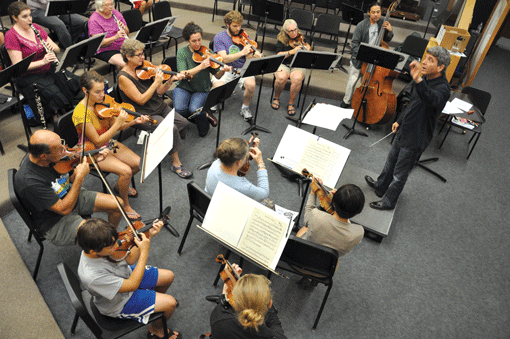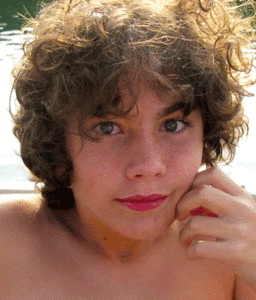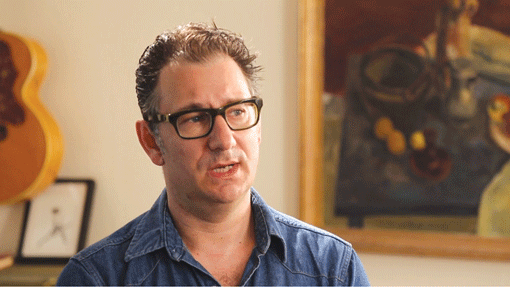Music will be the theme for the Twin Cities Jewish Community Conference on Mental Health on Oct. 19
By ERIN ELLIOTT BRYAN / Community News Editor
The theme of the 14th annual Twin Cities Jewish Community Conference on Mental Health is “Creating Harmony in Our Lives,” and it will feature music from Shir Harmony, a local Jewish women’s a capella group, as well as a unique performance by an orchestra comprised of local musicians affected by mental illness.
The daylong event will also include two sessions of workshops with 19 topics from which to choose — covering subjects such as acupuncture, herbs, meditation and mental health; staying connected; uncovering self-stigma; mental health in the Talmud; the stages of Alzheimer’s; and more.
The conference, which is free and open to all, will take place on Sunday, Oct. 19 at Temple Israel in Minneapolis. The American Jewish World is a media sponsor of the event.

Keynote speakers will be Ronald Braunstein and Caroline Whiddon, founders of the Me2/Orchestra in Burlington, Vt., which is described as the world’s only classical music organization created for individuals with mental illnesses and the people who support them. They will be interviewed about their life experiences by journalist Sarah T. Williams, who writes about mental health and addiction issues.
Following the keynote, Braunstein will lead a two-hour rehearsal of 30 local musicians to demonstrate the Me2/Orchestra approach. The piece will be performed at the conference’s closing session.
The Me2/Orchestra was formed three years ago with a goal to create a supportive environment, free from stigma, where people with and without mental illness could work side by side. The group began with seven members and now boasts 35 full-time musicians; Braunstein launched a second Me2/Orchestra in Boston in September.
“Because it was so small at the beginning, people got really close and really shared a lot of their story,” Braunstein told the AJW in a recent phone interview. “As a result, as we grew, the culture of the organization had that component of understanding and accepting each other.”
The group performs in traditional concert venues, but also takes its music to places where people may be struggling with mental health issues, such as hospitals, veterans’ facilities and state prisons.
Braunstein said the orchestra has performed “amazing concerts” at the prisons, where “half of the people in there should be in a mental hospital.”
“It really meant a lot to them,” Braunstein said. “We would ask questions and they would talk about what music means to them. It was always very striking how smart they were and insightful. It made me think of my stigma against people in prisons — that is gone.”
At the conference, Braunstein said he hopes the performance will show how people from all walks of life can work together to produce something beautiful.
“What [the audience] can take away is the knowledge that this kind of thing can happen not only in music, but in many arenas,” he said.
Following the keynote, there will be two sessions of workshops. Among the offerings will be “Surviving the Suicide of an Adult Child,” presented by social worker and Honeydogs rock band founder Adam Levy. He will be interviewed by journalist and filmmaker Kevin Featherly.
Featherly produced a multi-part documentary about Levy and his son, Daniel, who committed suicide in January 2012, at the age of 21.
“As much as I can, I want to talk to people about my experience,” Levy told the AJW last week. “A lot of people are watching friends and family members struggling with mental illness issues, so I guess I feel like there’s a duty that I have to share my experiences with as many people as I can.”

Daniel Levy was born in Minneapolis in 1990. At one year old, he relocated with his mother to New York, spending summers and holidays with Levy in Minnesota. As a toddler, he was the mascot for the Honeydogs, according to a March 2012 City Pages article.
Levy said his son began dealing with mental health issues around the age of 17. He was a talented artist and returned to the Twin Cities for a year and a half to study at Minnesota College of Art and Design.
Levy himself has dealt with anxiety and depression, and has been diagnosed at different times as bipolar, so he “intimately knew” what his son was starting to experience — even if he felt the diagnoses were not correct.
Like his father, Daniel Levy was also diagnosed as bipolar, though Levy felt it didn’t take into account the later symptoms of paranoia and hallucinations, which fall outside the parameters of the disease.
“I feel like my own diagnosis, as well as my son’s, has been inadequate,” Levy said. “It feels like we’re coming into a new era of understanding about mental illness and the complexities. So naming things, while it helps us understand them at some level, has its inadequacies.”
For a time, Daniel Levy was open to a variety of treatments, including medications, cognitive and group therapy, and other options. He was hospitalized more than five times and spent some time in longer-term facilities, though, as an adult, it was difficult for Levy to convince him to stay.
“We had to walk a very fine line between being respectful of his humanity, but also expressing our concern as parents and our desire to keep him alive when sometimes he was completely in another realm, as far as his desires for what he wanted to do and living in the world,” Levy said.

Levy acknowledged that for the last six months of his son’s life, he spent a lot of time worrying about the phone call he would receive saying Daniel had committed suicide.
“It felt like we were really fighting an uphill battle,” Levy said. “He was moving into a state of despair that was really hard to counter.”
Daniel Levy visited his father in Minnesota, in December 2011, though Levy said he drifted into a “catatonic state” during that time.
“I’m sure he was just checking out, psychologically, pulling up stakes of connections with people and the world, and contemplating how he was going to leave,” Levy said. “He was really shutting down. It was very hard to reach him… There was this resignation, surrender to what was out of our control.”
After his death, Levy found information on his son’s computer that showed a “great deal of thought” in making the decision to end his own life. Among other things, Daniel Levy took care to preserve his body so that his organs and tissues could be donated to “those who wanted to live.”
During the conference, Levy said he wants to offer a “candid sense” of how he has lived through this experience and to offer hope to others in similar situations. He will perform at the event’s closing session, singing a song he wrote in his memory of his son.
“My story, unfortunately, doesn’t have a real happy ending. But I think, at the same time, it’s important for people to understand that there’s only so much we can do to help people who are in this position,” Levy said. “It points to inadequacies in our healthcare system, it points to the continued stigmatization of mental illness. And the more that we’re having public forums discussing this — we’re not able to completely solve this and save everybody who wants to commit suicide — but I think we get closer to a point whereby we are dealing with this head-on and trying to come up with some solutions.”
***
The 14th annual Twin Cities Jewish Community Conference on Mental Health will take place 10 a.m. to 3:45 p.m. Sunday, Oct. 19 at Temple Israel, 2324 Emerson Ave. S., Minneapolis.
The Mental Health Education Project (MHEP) presents the annual conference on mental health. MHEP is a collaborative program of Jewish Family and Children’s Service of Minneapolis (JFCS) and Jewish Family Service of St. Paul (JFS).
Registration for the conference can be completed online or by mail. To register online, go to: www.jfcsmpls.org. To register by mail, call JFS at 651-698-0767 to request a conference brochure and registration form.
Everyone who registers by Oct. 10 will receive a bag lunch at no charge. Dietary laws will be observed.
(American Jewish World, 10.10.14)




















I have a past eating disorder and went through years of therapy. I have been healthy for quite a while now and am passionate about speaking to families regarding this important topic.
Who could I speak with regarding this?
best,
Andrea Noteboom